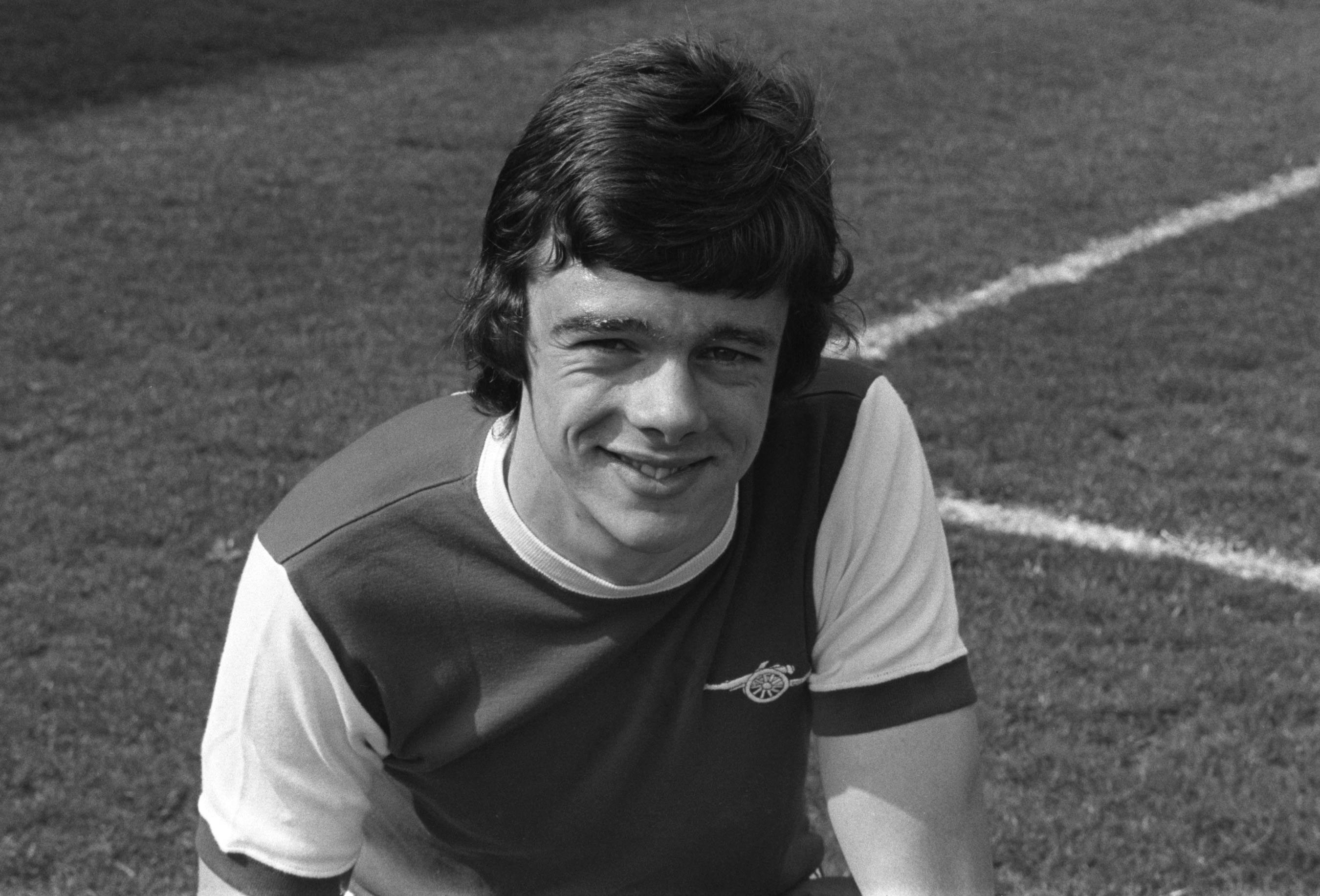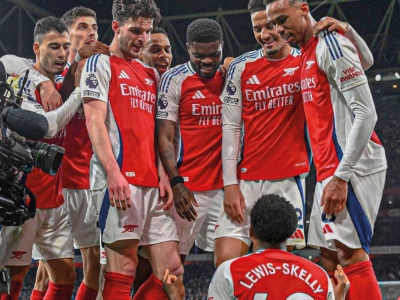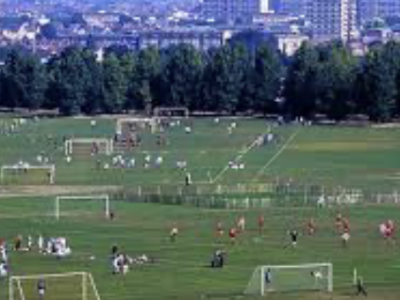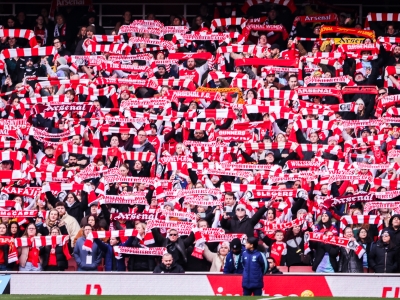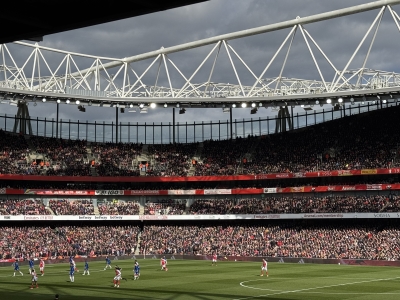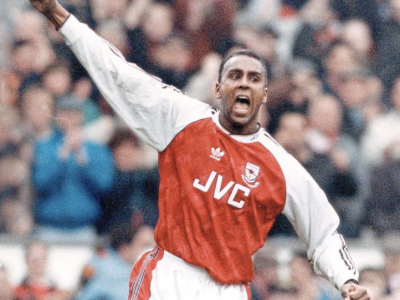In the meantime here's David with our latest REWIND feature, on the day Arsenal playing legend David O'Leary made his debut for the Gunners against Burnley at Turf Moor 45 years ago.
...............
August 16, 1975 marks both a beginning, and, if not an end, then, the beginning of an end.
It is the mid-point of a 33-year span of Highbury history from 1960 to 1993; an era which encompasses both Bertie Mee’s connection with the club; and David O’Leary’s first team career in the famous red and white: 1975/76 was the point of confluence and overlap for these two separate and great Arsenal eras: and the symbolic passing of the baton from the past to the future.
That day the Gunners travelled to Turf Moor for the first game of the season, away against Burnley. Britain was emerging from one of the hottest summers on record, a precursor of the prolonged heatwave and standpipes that awaited us in 1976: it had been a summer dominated nationally by The Bay City Rollers; the film Jaws; the nationalisation of British Leyland; and the inaugural Prudential Insurance Cricket World Cup.
Arsenal’s slightly more insular world had been dominated through the long summer recess with news sufficiently bleak to match the plight of the club at the time: the sale of North Bank hero, Charlie George to Derby County for just short of £100,000, was a symbolic body blow to the club generally, and to the supporters specifically; and long serving stalwart of the ‘double’ year, Bob McNab had also departed, moving to Wolves on a free transfer.
Then on the eve of the big kick-off further drama emerged out of the new tabloid hothouse of intrigue that Highbury was becoming with the announcement that transfer seeking Alan Ball had been banished from Highbury, and dropped from all representative Arsenal XIs.
When asked at a press conference if Ball was fit to play for either the first team or the reserves, Mee confirmed pointedly that Ball was indeed fit, but wouldn’t be needed for either.
Ball had been an irritant since being sent off at Derby County, along with McNab, just prior to the Cup 6th round tie at home to West Ham in the spring of ‘75: the club had refused to back his appeal and Ball had never forgiven them: the well of Hill-Wood’s and Mee’s sympathy for Ball had long since run dry: Hill-Wood was quite satisfied that Ball had deserved his sending off and had no intention of stirring the murky pond that was Arsenal’s reputation in the late winter of 1974/75 any further with an appeal which seemed to him as merely ‘trying it on’- notquite Arsenal!
Despite a reasonable pre-season in Scotland where Arsenal had performed well and encouragingly, the Gunners remained mired deep within a seemingly never-ending cycle of transition; a fall from grace for the once mighty Gunners being illustrated by the club being almost unanimously tipped for relegation by the pundits following the dire showing of the previous season.
With poor Bertie Mee looking ever more an anachronism: a man out of his time, as well as sadly beginning to appear out of sympathy with the task that lay before him; he sprang a surprise, one as touching in its apparent desperation as it was potentially brilliant in its inception.
Alongside selecting the 17-year-old David O’Leary to make his debut in the first game of the season, Mee also announced that Scottish maverick firebrand Eddie Kelly, 24, had been made new club captain.
Kelly’s demise of recent seasons had in many ways mirrored that of the club: from the heady heights of ‘double’ winner to the frustration and ill-tempered loss of direction which was beginning to manifest in shows of petulance: short dropping and then tossing his shirt at the boss when substituted.
Kelly’s stock with Mee had fallen a long way since the days when Mee had considered long and hard selecting him ahead of Peter Storey for the ’71 cup final.
Kelly had made no secret of his desire to become a regular for Scotland, indeed that he wasn’t by now would have been unimaginable back in the early part of the decade; Mee’s appointment of him as skipper perhaps intended to reign in his self-destructive energies and target them within a framework of responsibilities which being captain brought, and in so doing perhaps at last he could impress Scotland boss, Willie Ormond with some authentic ‘Eddie Kelly’ performances, ones conspicuously absent in recent times.
An interview, which appeared on the Monday following the Burnley game, begins: ‘Eddie Kelly is the rebel who has been given a cause’. Midway through the article, Kelly is quoted, stating:
“I won’t let them down. I am closer to Bertie Mee now than ever before. I am happy…and…part of a new spirit which is surging through the club”.
The spirit Kelly spoke of was one based largely upon the group of young players, like so many teenage Rolls-Royces, emerging off the club’s youth conveyor belt: O’Leary, Brady, Rix, and Stapleton.
Kelly would have known what he was talking about too, for he would have just skippered his first Arsenal side in a game in which O’Leary, the 17-year-old debutant stared with the calm, unruffled display which was to become his calling card for the next 18 years.
England manager, Don Revie had chosen to visit Turf Moor for Arsenal’s visit just prior to selecting his squad for an early season friendly against Switzerland, and perhaps ostensibly to run the rule over Alan Ball!
Ball’s absence gave him the opportunity to look at other players in the mix, and afterwards he spoke glowingly of ‘keeper Jimmy Rimmer, and forward Brian Kidd; while casting a covetous eye upon O’Leary whose English place of birth perhaps offered the chance to seize this prized possession for the English national side.
Perhaps what had influenced Revie to attend was the memory of a thrilling 3-3 draw some six months earlier between the two teams as Arsenal fought for their first division lives, but alas this time out it was to have none of the thrills of that six goal show.
On a sultry day in Lancashire, the eventual goalless draw could be put mainly down to the form of Rimmer, an imperious display from young O’Leary, and some bad luck for Kidd. The dry heat sapped the energy as the game wore on, and the second half was considerably more pedestrian; but in a lively early spell, in which Brady and Kelly were dominant, Arsenal established a foothold they were never entirely robbed of.
O’Leary had young Burnley forward Ray Hankin in his pocket (an achievement which will be marvelled at by gooners of a certain vintage!); Rimmer made a fantastic save from Collins and indeed Hankin; and in the second half as the pace dipped, Kidd thought he had won it, when his swirling shot from distance beat ‘keeper Stevenson all ends up only to come crashing back off the woodwork.
It was an encouraging showing and a satisfactory result, certainly one which augured well for the rest of the season.
In a team, although bereft of the disgraced Ball, yet still containing players of the quality of Rimmer, Rice, Nelson, Cropley, Armstrong, Kidd, and Kelly it was Brady and O’Leary who took the plaudits come Sunday and Monday in the press.
Four days later the Arsenal travelled to Bramall Lane to register a 3-1 victory. Ball had pleaded with Mee to select him, but Mee would not yield, and his decision was vindicated as Brady ran the game, scoring a solo goal out of nothing too from 30 yards as Arsenal hung on, down to 10 men after Sammy Nelson’s sending off in the second half.
Eventually of course the slow public death of Bertie Mee’s Arsenal reign would speed up and he would resign with tears, and then depart at the end of the season: Kelly, the likeable schemer from Arbroath was dropped after a 2-0 Boxing Day defeat at Ipswich, which left the club fifth from bottom amidst a desperate run of results, and he would never play for the club again.
In the summer he would move on to QPR, and then Leicester City where he had a renaissance of sorts under Jock Wallace and perhaps at last became the player, he had looked on those distant and balmy nights against Anderlecht and Tottenham!
O’Leary would however go from strength to strength and become with Liam Brady and a fledgling Frank Stapleton the only positives to emerge out of a season which was truly the nadir of my young Arsenal life.
Bertie is well and truly now secured in his place in the Arsenal hall of fame; it is good to hear that Eddie is apparently back at the club too, or was, working in match day hospitality until the pandemic put a hold on that; and what of O’Leary?
I cannot pretend to be a judge of what abilities he might bring to the boardroom, but football is surely all about continuities and connections; shared reference points which sustain an unbreakable bond of community?
It is 45 years since he made his debut for the Arsenal, 722 games later he is part of the fabric of our collective memories. It is organically out of the past that the future grows best.
O’Leary would bring an echo of the days of Highbury; of the sunlight and every floodlit shadow which moved across that field of dreams.
Hold fast to the past, for without it we know nothing of where we came from, or where we are headed; and even those little days, like a ‘0-0 at Burnley’, contribute to a bigger panoramic picture: for from those small events come big stories like David O’Leary!
..............
..............

